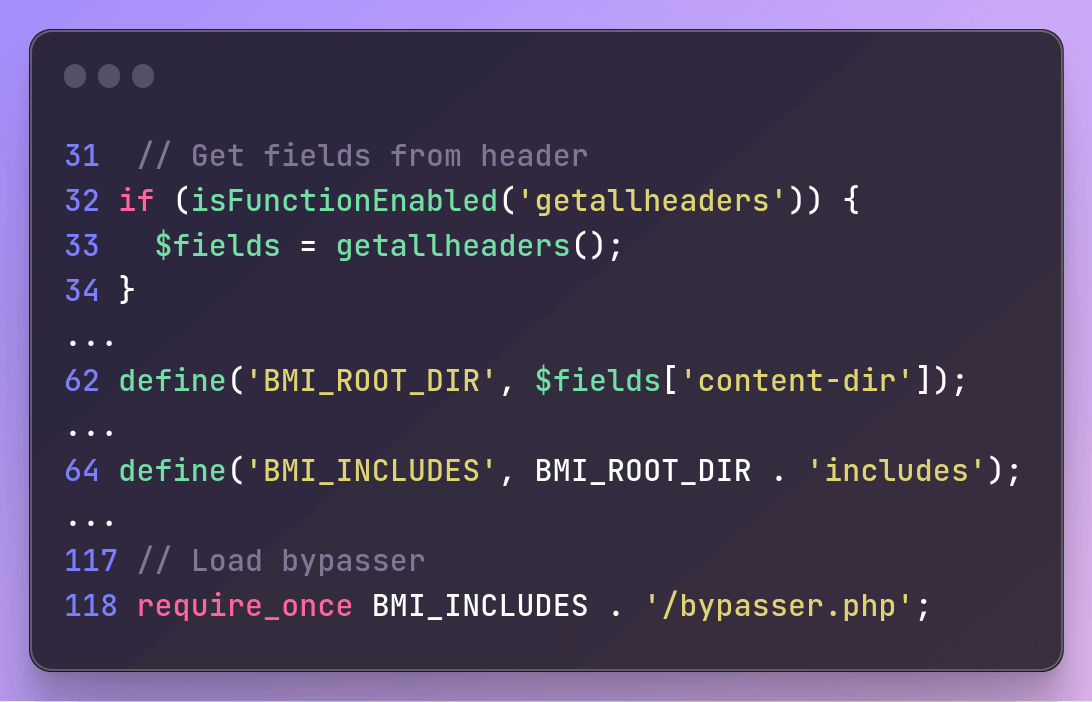 Wordfence just launched its bug bounty program. Through December 20th 2023, all researchers will earn 6.25x our normal bounty rates when Wordfence handles responsible disclosure for our Holiday Bug Extravaganza! The researcher who reported this vulnerability was awarded $2,751.00! Register as a researcher and submit your vulnerabilities today!
Wordfence just launched its bug bounty program. Through December 20th 2023, all researchers will earn 6.25x our normal bounty rates when Wordfence handles responsible disclosure for our Holiday Bug Extravaganza! The researcher who reported this vulnerability was awarded $2,751.00! Register as a researcher and submit your vulnerabilities today! 
On November 8th, 2023, Wordfence launched a Bug Bounty Program to help support our mission in securing the web. In only a month’s time, we have had over 270 vulnerability researchers register and submit almost 130 vulnerabilities!
On December 5th, 2023, shortly after the launch of our Holiday Bug Extravaganza, we received a submission for a PHP Code Injection vulnerability in Backup Migration, a WordPress plugin with over 90,000+ active installations. This vulnerability makes it possible for unauthenticated threat actors to inject and execute arbitrary PHP code on WordPress sites that use this plugin.
We quickly released a firewall rule to protect Wordfence Premium, Wordfence Care, and Wordfence Response customers on December 6, 2023. Sites still running the free version of Wordfence will receive the same protection 30 days later, on January 5, 2024.
We contacted the BackupBliss team, makers of the Backup Migration plugin, on the same day we released our firewall rule. After providing full disclosure details, the team released a patch just hours later. Kudos to the BackupBliss team for an incredibly swift response and patch.
We urge users to update their sites with the latest patched version of Backup Migration, which is version 1.3.8 at the time of this writing, immediately.
Vulnerability Summary from Wordfence Intelligence
Affected Plugin: Backup Migration
Plugin Slug: backup-backup
Affected Versions: <= 1.3.7
CVE ID: CVE-2023-6553
Pending CVSS Score: 9.8 (Critical)
CVSS Vector: CVSS:3.1/AV:N/AC:L/PR:N/UI:N/S:U/C:H/I:H/A:H
Researcher/s: Nex Team
Fully Patched Version: 1.3.8
Bounty Award: $2,751.00
The Backup Migration plugin for WordPress is vulnerable to Remote Code Execution in all versions up to, and including, 1.3.7 via the /includes/backup-heart.php file. This is due to an attacker being able to control the values passed to an include, and subsequently leverage that to achieve remote code execution. This makes it possible for unauthenticated threat actors to easily execute code on the server.
Technical Analysis
Line 118 within the /includes/backup-heart.php file used by the Backup Migration plugin attempts to include bypasser.php from the BMI_INCLUDES directory. The BMI_INCLUDES directory is defined by concatenating BMI_ROOT_DIR with the includes string on line 64. However, note that BMI_ROOT_DIR is defined via the content-dir HTTP header on line 62.

This means that BMI_ROOT_DIR is user-controllable. By submitting a specially-crafted request, threat-actors can leverage this issue to include arbitrary, malicious PHP code and execute arbitrary commands on the underlying server in the security context of the WordPress instance.
Disclosure Timeline
December 5, 2023 – We receive the submission of the PHP Code Injection vulnerability in Backup Migration via the Wordfence Bug Bounty Program.
December 6, 2023 – We validate the report and confirm the proof-of-concept exploit.
December 6, 2023 – We initiate contact with the plugin developer and send over the full disclosure details. The vendor acknowledges the report and begins working on a fix. A fully patched version of the plugin, 1.3.8, is released.
Conclusion
In this blog post, we detailed a critical PHP Code Injection vulnerability within the Backup Migration plugin affecting versions 1.3.7 and earlier. This vulnerability allows unauthenticated threat actors to inject arbitrary PHP code, resulting in a full site compromise. The vulnerability has been fully addressed in version 1.3.8 of the plugin.
We urge WordPress users to verify that their sites are updated to the latest patched version of Backup Migration.
Wordfence users running Wordfence Premium, Wordfence Care, and Wordfence Response have been protected against these vulnerabilities as of December 6, 2023. Users still using the free version of Wordfence will receive the same protection on January 5, 2024.
If you know someone who uses this plugin on their site, we recommend sharing this advisory with them to ensure their site remains secure, as this vulnerability poses a significant risk.
The post Critical Unauthenticated Remote Code Execution Found in Backup Migration Plugin appeared first on Wordfence.



